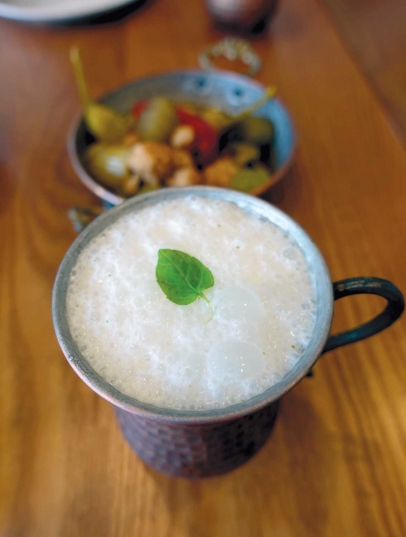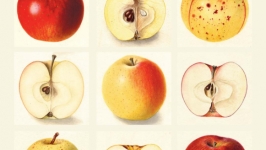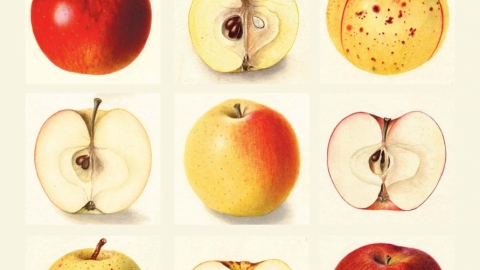Tasting IRAQ
People tend to think and talk about food in broad strokes, especially in terms of geographic origin. Many Americans, for example, know the cuisines from the countries of western Asia as “Middle Eastern” food. But what does that term mean? These countries are east of whom, and in the middle of what? There are scholars today who question whether we should even use the term, which British colonizers may have invented and imposed on the residents of the region. Using “Middle Eastern” to describe cuisine might help customers identify menu items common to the region, but it obscures the nuanced flavors and dishes of specific cultures and countries, such as those of Yemen, Lebanon, and Palestine.
I live in New York City, close to restaurants specializing in each of these delicious cuisines and many others. Yet one food culture from the region has evaded me: the cuisine of Iraq.
I was a teenager in the late ’90s, when the Iraq war dominated the headlines, and that was just about all I heard of the country. But Iraq is a country that has existed at the very cradle of civilization, descended from the ancient Mesopotamian cultures that developed between the Tigris and Euphrates rivers, with a modern-day capital, Baghdad, a cosmopolitan city that has produced scholars, artists, intellectuals, musicians, and poets. It’s a country with a rich history and culture, but I knew very little of its food.
New York City’s one Iraqi restaurant, located in Bay Ridge, Brooklyn, closed down not long ago, so I headed out to the Garden State in search of the cuisine that had eluded me in New York.
Al-Mazaq Bakery and Restaurant is located in Paterson, New Jersey, down an industrial street where factory buildings alternate with multiple eateries.
The restaurant is in a small former service garage. But like so many of the dining rooms where I’ve eaten the best meals of my life, I found that what the space lacks in glamor, the cuisine provides in unbelievable variety and flavor. One step inside Al-Mazaq reveals clean white walls with framed vintage photographs of Baghdad hinting at the meal to come. Then the mingling of the aroma given off by warm, sweet, fresh-baked bread with the smell of roasting lamb hits you, and you know something special awaits.
The Oudahs, an Iraqi-American family with four sons and four daughters, opened the bakery first, in 2017. Since arriving in this country in 2009, they had been the only Iraqi immigrant family they knew of who made their own homemade bread. Prior to making their own, the family would drive all the way in Virginia, to the nearest Iraqi restaurant they knew of, stock up on bread, and store it in their home freezer. When they began making it fresh, they did everything from scratch: hand tossing and stretching the dough, never using machines.
When they expanded to the building on East Railway Avenue, they chose it intending to bake large quantities of Iraqi bread for wholesale. But to help celebrate the bakery’s grand opening, the family matriarch, Ahlam Oudah, cooked a feast of traditional Iraqi dishes. Patrons loved the food so much that they asked her to sell it along with the bread. Thus an Iraqi restaurant was born in New Jersey.
Ahlam, still head chef, begins her work early, setting up the kitchen and prepping in the small hours of the morning. Everything is homemade, in-house, from the bread to the stews to the pickled vegetables.
LIKE SO MANY OF THE DINING ROOMS WHERE I’VE EATEN THE BEST MEALS OF MY LIFE, I FOUND THAT WHAT THE SPACE LACKS IN GLAMOR, THE CUISINE PROVIDES IN UNBELIEVABLE VARIETY AND FLAVOR.
A Meal with Hiyam
On my visit to Paterson, I sat at a dining table with Ahlam’s daughter Hiyam, who explained to me that every Iraqi home has its own tandoor oven, a cylindrical clay or metal oven that families use to bake bread. During the years the country was at war, bread was a cheaper, more filling option than many other staples common to Iraqi kitchens.
The result is a circular, chewy bread, similar to naan, called tanoor. In 2022, the restaurant started to serve samoon bread as well—a lighter, thinner flatbread that bubbles to form a pocket of air in the center. Hiyam’s brother Mustafa experimented and perfected the bread over five years of trials before it was ready to be sold wholesale and at the restaurant. The bread is perfect for tearing and scooping up steaming bowls of stew or chilled pickled vegetables.
Hiyam also presented me with two stews, one with white beans in a savory broth, and the other a stewed okra stew called bamia, expertly cooked, with savory vegetables nearly dissolving into bright red broth.
Alongside the stews, she served me Ouzi, a beautiful lamb shank roasted until the meat was tender and ready to fall off the bone. The lamb was served over basmati rice with olive oil, pine nuts, garlic, cinnamon, and raisins. In nearly every dish over a lifetime of eating, I have not cared for raisins. But here, they offered a wonderful textural element and a sweet addition to the savory rice. This is the kind of dish you continue eating long past the point of being full, when your appetite may be sated but the pleasure of the flavors is never quelled.
Next came Iraqi kebabs, skewers of minced lamb garnished with red onions, sumac, parsley, lemon, and roasted hot peppers all wrapped in a charred tandoori bread. The meat was tender and juicy, and the accompanying garnishes provided exceptional texture and taste enhancement to the dish.
HIYAM PRESENTED ME WITH TWO STEWS, ONE WITH WHITE BEANS IN A SAVORY BROTH, AND THE OTHER A STEWED OKRA STEW CALLED BAMIA, EXPERTLY COOKED, WITH SAVORY VEGETABLES NEARLY DISSOLVING INTO BRIGHT RED BROTH.
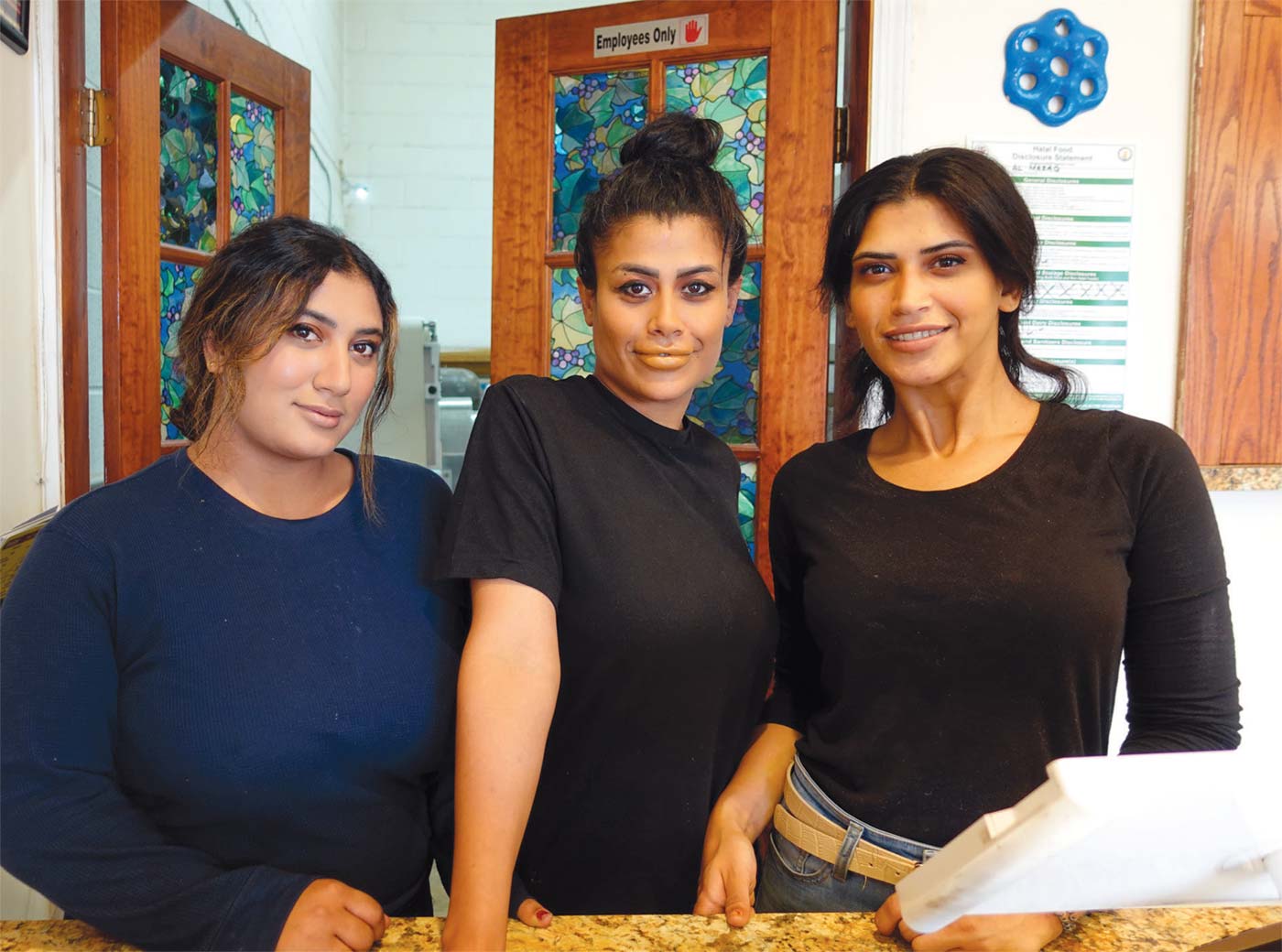
Oudah sisters (left to right): Hiba, Riyam and Hiyam
Finally, Hiyam brought out the dulma, also spelled dolma or dolmades. The dolmades that arrived at our table were rice-stuffed grape leaves, onions, and peppers that were slowly simmered in a tomato broth with spices and aromatics, served with lemon slices for a hint of acidity. This is a familiar dish in Lebanese, Syrian, Persian, and Greek restaurants and often associated with Ottoman cuisine, but the flavors here were unique and especially vibrant, in part because everything is handmade fresh, daily, and also due to the spices and preparation, which Hiyam told me she must keep secret. I’ve had dolmades before, but these were at another level. Slightly crunchy on the bottom, tender to the point of melting in the center, popping with flavor, the stuffed dishes may have ruined for me any future interest in the canned variety that is common at other restaurants due to the laborious nature of the dish. Since Hiyam served me fresh dolmades, there is no going back.
A smoked yogurt drink known as ayran or doogh was an intense, unique accompaniment to the meal. Served in a copper cup and topped off with a bright green piece of mint, the frothy, drinkable yogurt was salty, sour, and floral. You taste with your eyes and nose before the liquid ever touches your taste buds, and the scent of this refreshing drink was as fresh and delicate as breathing in fresh air over a meadow.
It must be noted that I missed the opportunity to sample maskoof (also spelled masgouf), or grilled carp, the national Iraqi dish. To experience this delicacy, you must call and request it two days in advance. Do learn from my mistake—this dish is not to be missed.
Dinner was followed by freshly brewed loose-leaf cardamom tea, a tribute to Iraq’s teahouse culture, and a customary practice in every household. While sipping the fragrant tea I was able to talk with Hiyam, and I listened to her speak about Iraqi culture and cuisine. She mentioned that every family in Iraq will offer tea to its guests.
Despite the complexity of the flavors and intensity of the preparation, Hiyam explained to me that the food on their menu featured dishes that are commonly found in Iraqi homes. The Oudah family wanted to provide traditional meals that are familiar to Iraqi-Americans.
I left with a full stomach and many answered questions, but there’s much of Iraqi cuisine left to explore. Fortunately, Al- Mazaq Bakery and Restaurant is just a short ride away, and I know the Oudah family will happily continue educating and feeding its customers for many years to come.
AL-MAZAQ BAKERY AND RESTAURANT
46 E. Railway Ave., Paterson
862.239.9444
almazaqrestaurantbakery.com/instagram.com/al_mazaq/
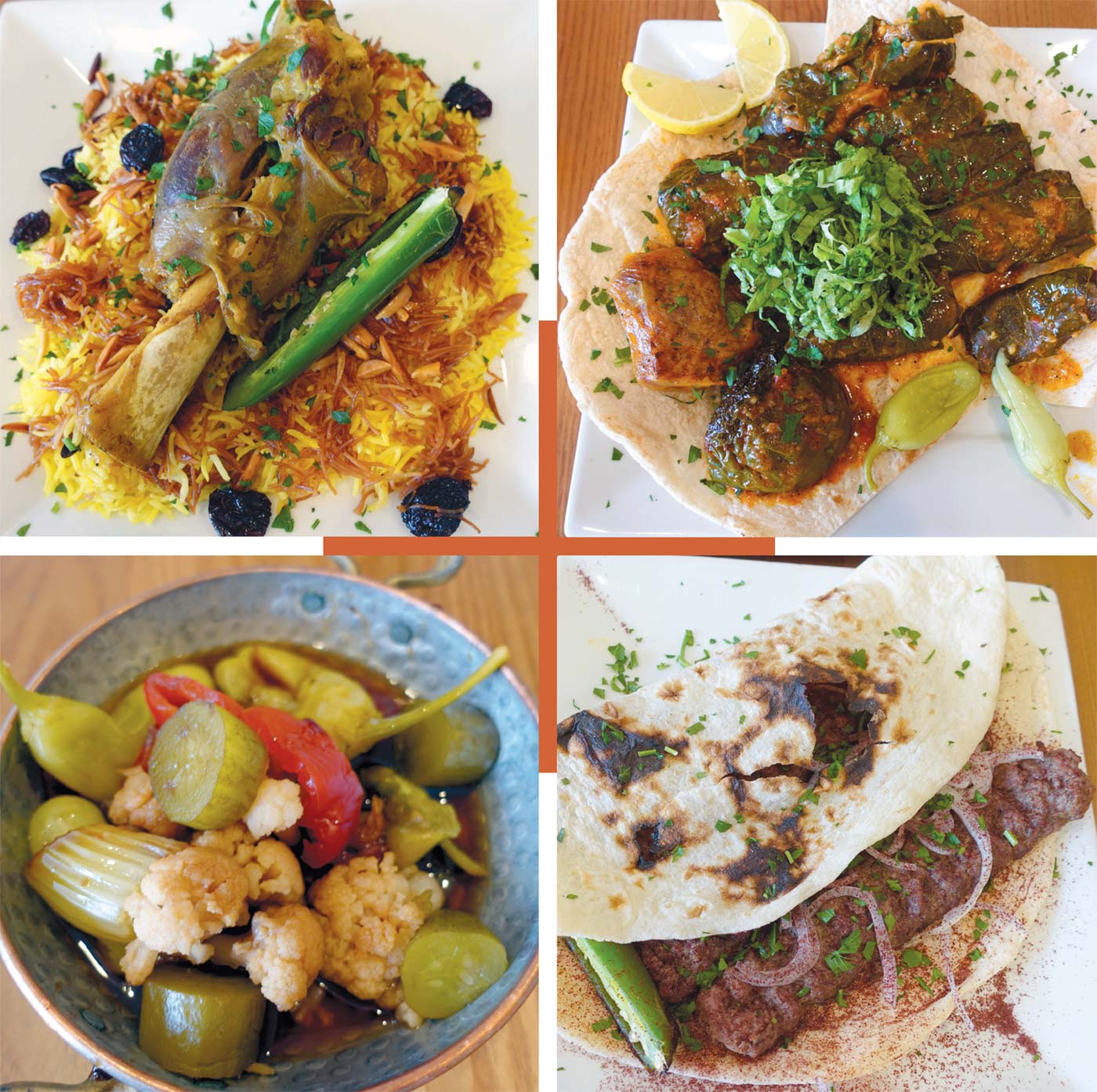
Clockwise from top left: Ouzi, roasted lamb shank; Dolma; Iraqi Kebab; pickles


